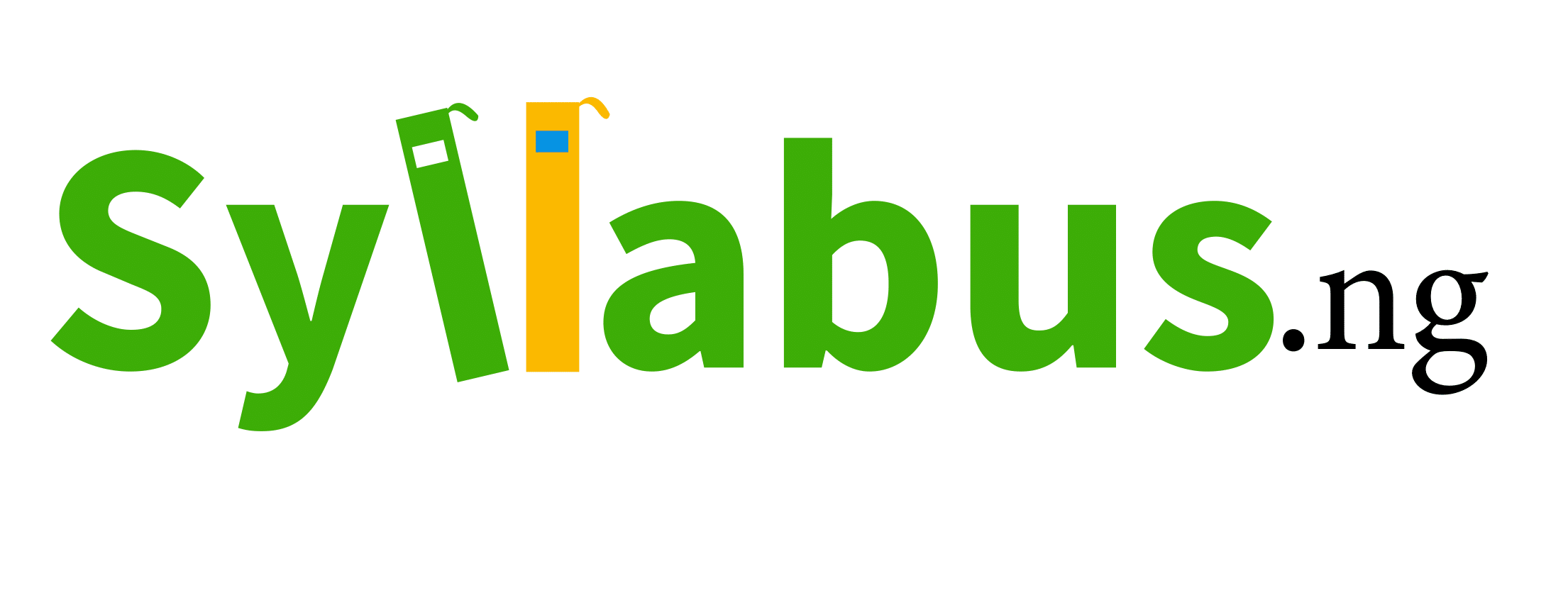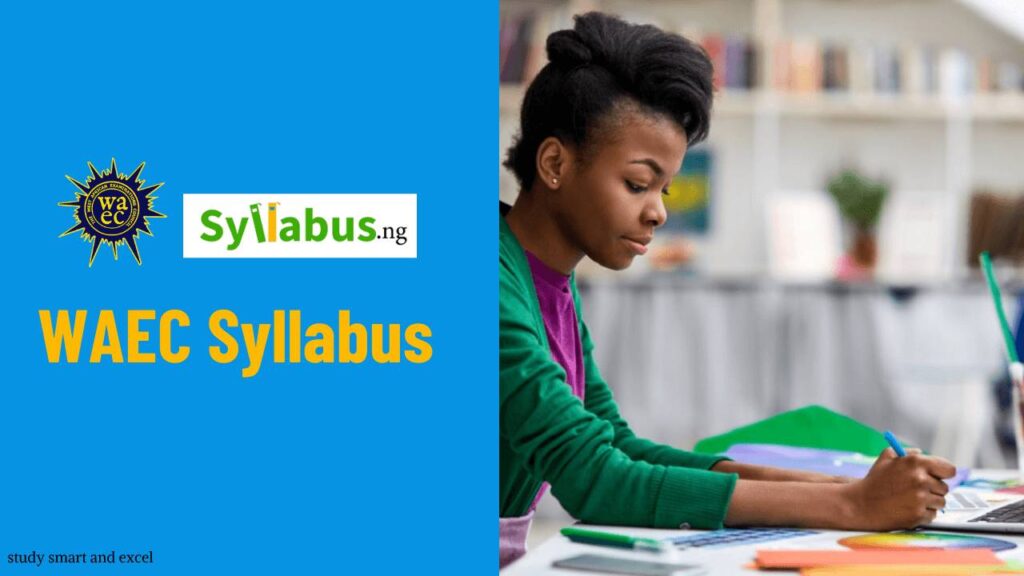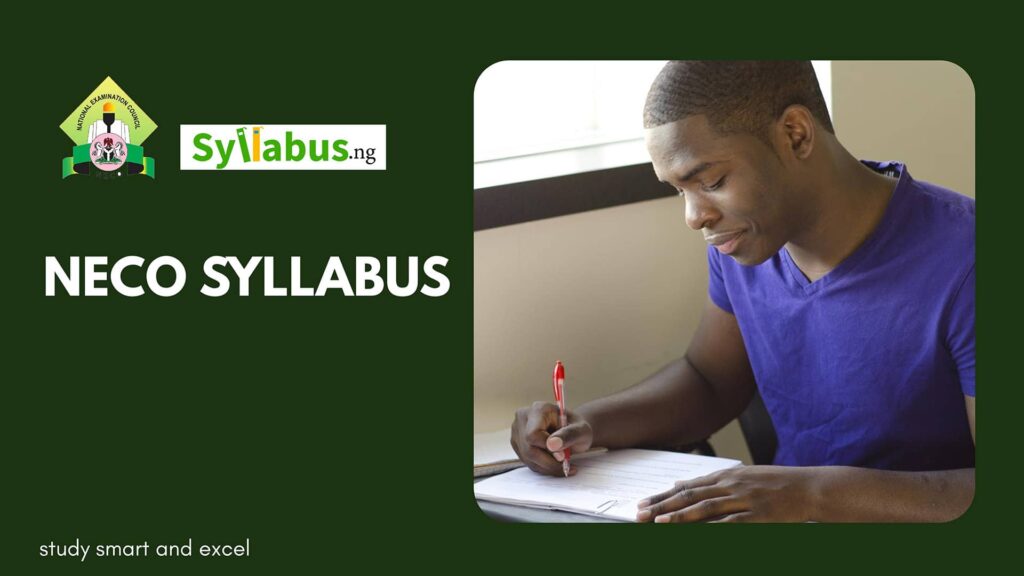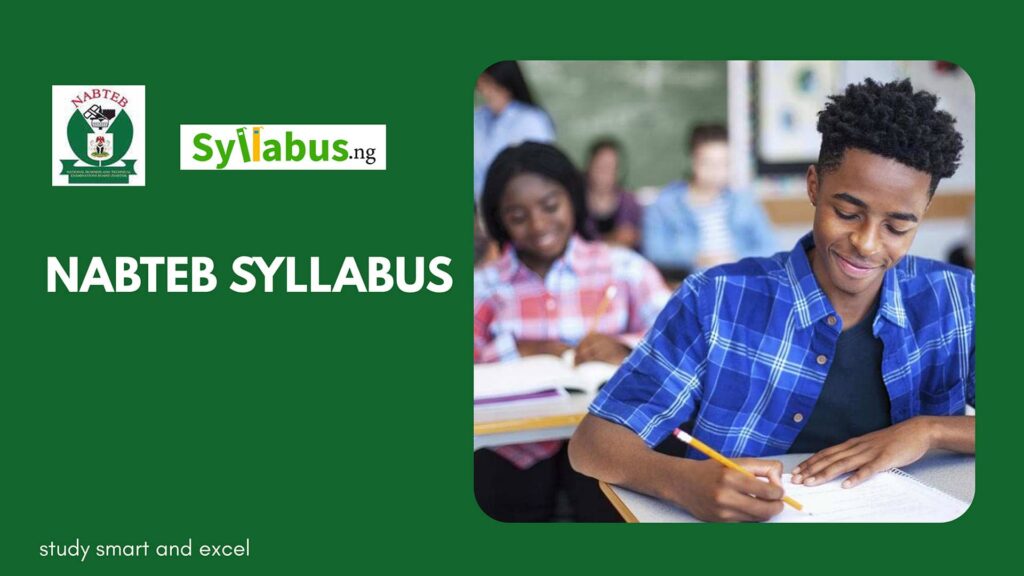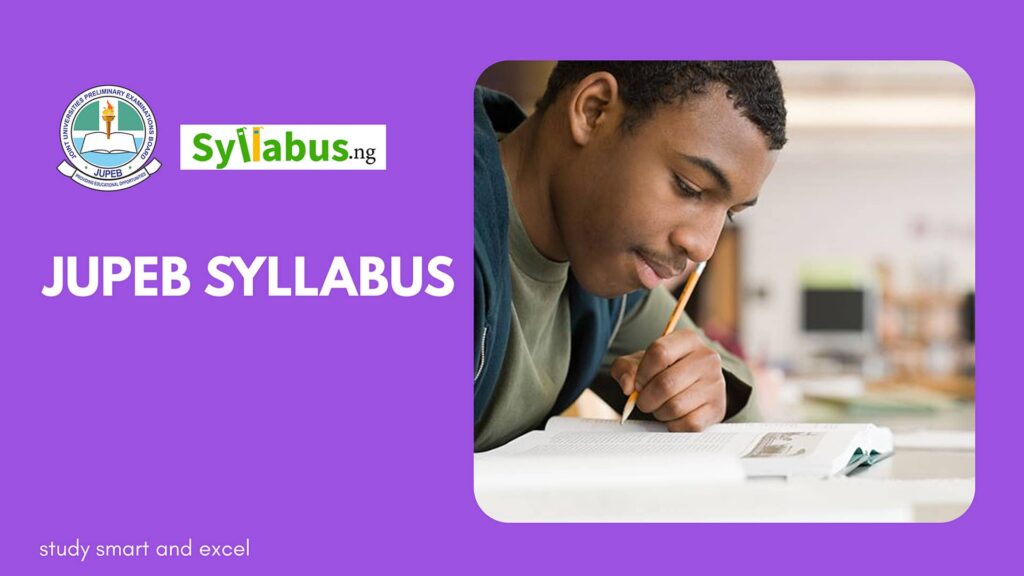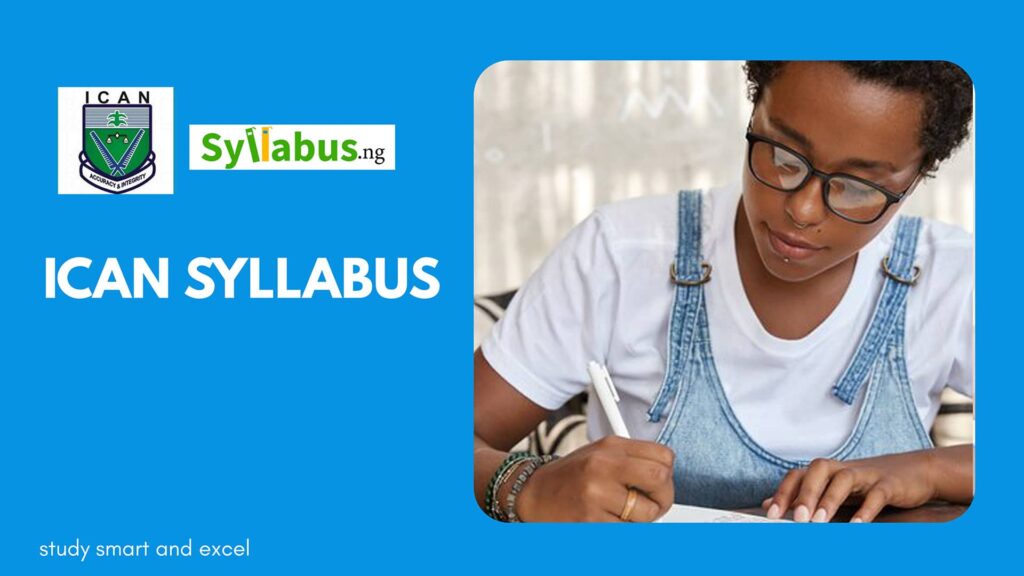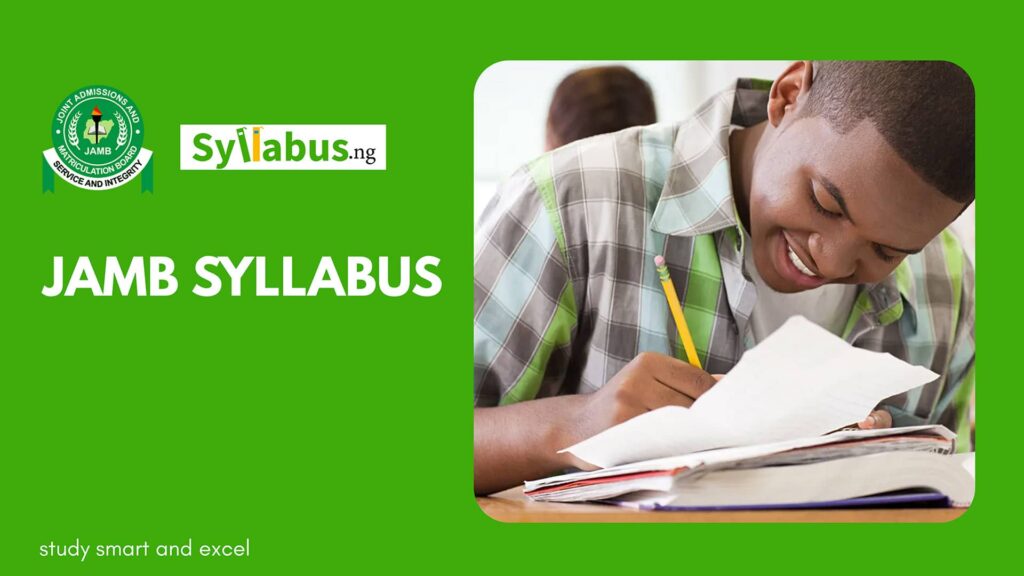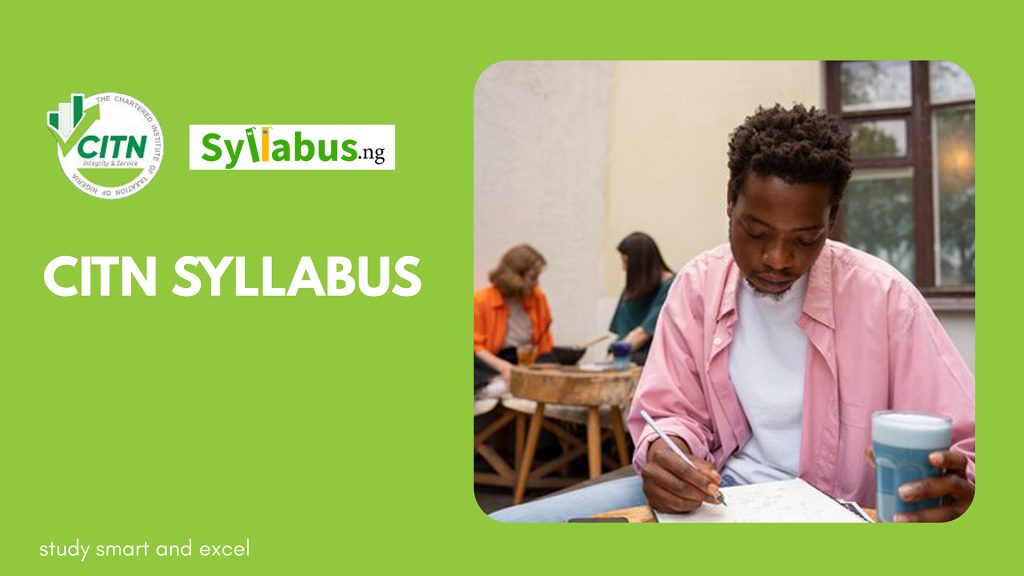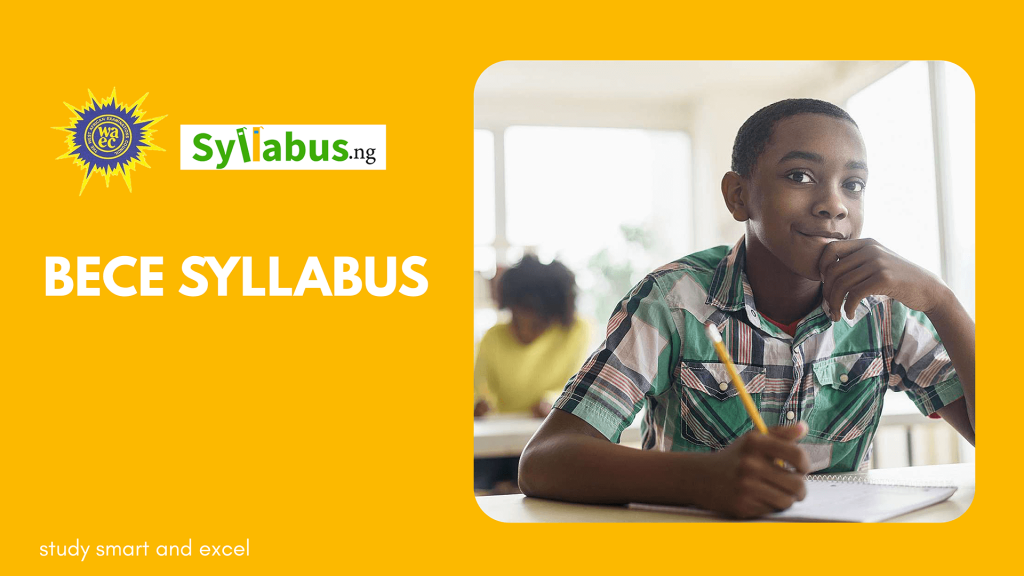JUPEB Literature-in-English Syllabus
Are you writing Literature-in-English in your upcoming JUPEB exams? Download the recommended Literature-in-English syllabus to excel in your exams. Take the first step in studying smart today.

Home » JUPEB Syllabus » JUPEB Literature-in-English SyllabusAbout JUPEB Literature-in-English Syllabus
Dear JUPEB Literature-in-English students, have you been looking for a simplified but well-detailed syllabus to help you in your journey? You are in the right place.
Congratulations to you on getting admitted into the JUPEB program. We encourage you to study as hard as you can so you can be admitted into your preferred course choice.
Having good grades is the dream of every student and with this JUPEB syllabus, you can have just that. This Literature-in-English syllabus contains the full list of the topics for each semester for your JUPEB program and it’s a must-have
Not only will you be ahead of your peers and your lecturers when you study with this but you also have an idea of what your exam questions will be like. Make sure you download this and share it with friends so they can also pass their exams..
What Course Of Study Can Choose Literature-in-English
With a pass in your JUPEB Literature-in-English exam, you can study Law, Political science, Public Administration, Mass Communication, Theatre Arts, or any Art-based course of your choice.
Download JUPEB Literature-in-English Syllabus
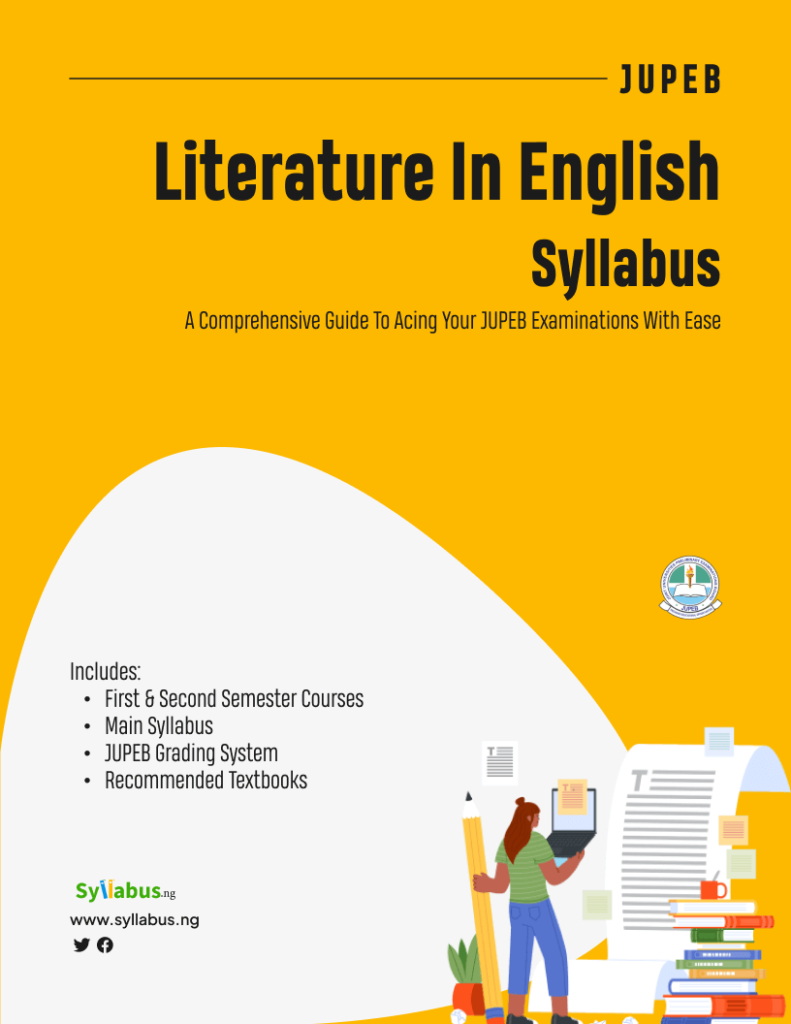
Best candidates don’t just study hard, they study smart
Download JUPEB Literature-in-English Syllabus today!
JUPEB First Semester Courses Literature-in-English
COURSE CODE | COURSE TITLE | CREDIT LOAD |
LIT001 | Introduction to Drama | 3 Units |
LIT002 | Prose Fiction | 3 Units |
JUPEB FIRST SEMESTER Literature-in-English SYLLABUS
| JUPEB LITERATURE-IN-ENGLISH SYLLABUS | ||
| SN | TOPICS | OBJECTIVES |
| FIRST SEMESTER | ||
| LIT001: INTRODUCTION TO DRAMA | ||
| 1 | INTRODUCTION | i. Definition of drama/theatre ii. Origin of drama/theatre iii. The relevance of drama to the society iv. Types/Forms of drama: Tragedy, Comedy, Melodrama, Farce etc. v. The Structure of drama: Plot (conflict, resolution and meaning), Character, Language, Themes etc. Illustration |
| 2 | THE CLASSICAL TRADITION | i. Introduction to Classical tradition in Drama ii. Major playwrights and theorists of the classical tradition: Sophocles, Aeschylus, Euripides, Aristophanes, Aristotle etc. iii. [Sophocles’ King Oedipus and Antigone are recommended texts to be used in illustrating background to, aspects and tradition of Classical drama and theatre |
| 3 | EUROPEAN DRAMA (THE RENAISSANCE TRADITION) | i. Background to Renaissance Drama: William Shakespeare, Christopher Marlowe, etc. ii. WILLIAM SHAKESPEARE: Shakespeare’s England, Drama in the Elizabethan and Jacobean Ages, Shakespeare’s Contemporaries ii. TEXUAL STUDIES: Macbeth, Twelfth Night, Hamlet, Merchant of Venice. It is expected that candidates should do an in-depth study of at least one tragedy and one comedy. In doing this, attention should be paid to the structure and elements of drama. A very detailed study is recommended. |
| 4 | EUROPEAN DRAMA (THE MODERN TRADITION) | i. Background to Modern Drama: Henrik Ibsen, George Bernard Shaw, John Osborne, Anton Chekhov, Betolt Bretch, Samuel Becket etc. ii. Henrik Ibsen and George Bernard Shaw: Drama in the Modern Period, Ibsen, Shaw and the Modern Society. iii. TEXTUAL STUDIES: An in-depth textual analysis of G. B. Shaw’s Mra Warren’s Profession or Henrik Ibsen’s Hedda Gabler |
| 5 | AMERICAN DRAMA(TGE MODERN TRADITION) | i. Background to American Drama: Arthur Miller, Tennessee Williams, August Wilson, Amiri Baraka, etc. ii. August Wilson and Amiri Baraka: Drama in the Modern American Society. iii. TEXTUAL STUDIES: An in-depth textual analysis of Wilson’s Fences or Baraka’s Dutchman. |
| 6 | AFRICAN DRAMA(THE MODERN TRADITION) | i. Background to African Drama: Wole Soyinka, J. P. Clark-Bekederemo, Zulu Sofola, Tess Onwueme, Femi Osofisan, etc.. ii. WoleSoyinka and Ama Ata Aidoo: Drama in the Modern African Society. iii. TEXTUAL STUDIES: An in-depth textual analysis of Soyuinka’s Death and the King’s Horseman or Aidoo’s Dilemma of a Ghost. |
| LIT002: PROSE FICTION | ||
| 7 | INTRODUCTION | i. Definition of Prose Fiction ii. Development of the Novel Tradition/Modern Prose Fiction iii. Types/Forms of Prose Fiction: African, non-African, Short story, Novella, Novel, etc. iv. The Structure of Prose: Plot (conflict, resolution and meaning), Character, Language, Themes, Setting etc. v. The relevance of Prose to the society |
| 8 | THE EUROPEAN PROSE TRADITION | i. Introduction to European Prose Tradition 4 ii. Major prose writers of the European prose tradition: Daniel Defoe, Henry Fielding, George Eliot, Jane Austen, James Joyce, etc iii. [Jane Austen’s Pride and Prejudice and E. M. Forster’s A Passage to India are recommended texts to be used in illustrating background to, aspects and tradition of European Prose tradition]. |
| 9 | AFRICAN PROSE (MODERN AFRICAN NOVEL) | i. Background to Modern African novel: Chinua Achebe, Wole Soyinka, Elechi Amadi, Ngugi wa Thiong’O, Ayi Kwei Armah, Sembene Ousmane, etc. ii. Chinua Achebe’s A Man of the People and wa Thiong’ O’s A Grain of Wheat iii. TEXTUAL STUDIES: Thematic preoccupation, setting, characters and characterization, plot structure, etc of the two novels to be analysed |
JUPEB Second Semester Courses for Literature-in-English
COURSE CODE | COURSE TITLE | CREDIT LOAD |
LIT003 | Introduction To Prose | 3 Units |
LIT004 | Unseen Prose & Poetry
| 3 Units |
JUPEB SECOND SEMESTER Literature-in-English SYLLABUS
| SECOND SEMESTER | ||
| LIT003: INTRODUCTION TO POETRY | ||
| 10 | INTRODUCTION | i. Definition of Poetry and the poem ii. Traditional and Modern Poetry (Oral and Written). iii. Types/Forms of Poetry: Lyric, Ode, Ballad, Dirge, Epic, Sonnet, The Free Verse and Blank Verse etc. iv. The relevance of Poetry to the society |
| 11 | THE CLASSICAL TRADITION | i. The Structure of the Poem: Versification and Stanza Forms, Cantos; Plot (conflict, resolution and meaning), Character, Language, Themes etc. ii. Introduction to Classical Tradition in Poetry iii. Major poets and theorists of the classical tradition: Homer, Ovid, Plato Aeneas etc. iv. [Ovid’s Metamorphoses I-V is the recommended text to be used in illustrating background to, aspects and tradition of Classical poetry]. |
| 12 | EUROPEAN POETRY (THE MEDIEVAL AND RENAISSANCE TRADITIONS) | i. Background to Medieval and Renaissance Poetry: Geoffrey Chaucer, Sir Thomas Wyatt, Surrey, Edmund Spencer, Sir Walter Raleigh, John Milton, William Shakespeare, John Donne etc. ii. The rise of English Language from vernacular status to acceptable international level should be studied. Chaucer’s, Wyatt’s, Shakespeare’s, Pope’s contributions as well as the general conditions of poetry in the Medieval, Elizabethan, Jacobean, Caroline, Restoration and Augustan Ages should be studied. iii. TEXUAL STUDIES: Geoffrey Chaucer: General Prologue, Wife of Bath’s Tale; John Milton: Paradise Lost Bks 1 & 2; Alexander Pope: The Rape of the Lock; John Donne: “Holy Sonnet;” Andrew Marvell: “To His Coy Mistress.” George Herbert: “The Collar:” It is expected that candidates should do an in-depth study of at least three major poets. In doing this, attention should be paid to the structure and elements of Poetry. A very detailed study is recommended. |
| 13 | EUROPEAN POETRY ( 19th and 20th CENTURIES) | i. Background to The Romantic, Victorian Edwardian and Modern Poetry: William Worthsworth’s Preface to The Lyrical Ballads should serve as a good introduction to The Romantic and Later traditions. ii. William Worthsworth’s “Resolution and Independence;” John Keats’ “The Eve of St. Agness;” Thomas Hardy’s “The Ruined Maid” and “A Church Romance;” T. S. Eliot’s “The Waste Land;” W. B. Yeats’ “The Second Coming Shaw and the Modern Society are expected to be studied comprehensively |
| 14 | AMERICAN POETRY (THE MODERN TRADITION) | i. Background to AFRICAN Poetry: Oral and Written; Interface between the Oral and the Written forms. ii. Anonymity and Authorship; Examples of modern authors: Wole Soyinka, Christopher Okigbo, Kofi Awoonor, Dennis Brutus, Masizi Kunene etc. iii. TEXTUAL STUDIES: An in-depth textual analyses of Soyinka’s “The Four Archetypes” Christopher Okigbo’s “Path of Thunder” Kofi Awoonor’s “Songs of Sorrow” Masizi Kunene’s Emperor Shaka The Great and Okot p’Bitek’s Song of Lawino are recommended |
| LIT004: UNSEEN PROSE & POETRY | ||
| 15 | LITERARY APPRECIATION (UNSEEN) | i. Students will be tested on specific skills of literary appreciation and criticism of the main genres (drama, poetry and prose fiction). ii. It is recommended that the candidates be taught, in addition, critical approaches like, Biographical, Philosophical, Textual, Structural etc. while the specific techniques of criticism are recommended, no specific texts are specified. |
Recommended JUPEB Literature-in-English Textbooks
1. Abrams, M. H. (1981) A Glossary of Literary Terms, (4th Edition) New York, Holt Rinehart and Winston
2. Emeaba, O. E. (1982) A Dictionary of Literature, Aba: Inteks Press
3. Murphy, M. J. (1972) Understanding Unseen, An Introduction to English Poetry and English Novel for Overseas Students, George Allen and Unwin Ltd.
4. Gbemisola, A. (2005) Naked Soles, Ibadan: Kraft
5. Hayward, J. (ed.) (1968) The Penguin Book of English Verse, London Penguin
6. Johnson, R. et al (eds.) (1996) New Poetry from Africa, Ibadan: UP Plc
7. Kermode, F. et al (1964) Oxford Anthology of English Literature, Vol. II, London: OUP
8. Nwoga D. (ed.) (1967) West African Verse, London: Longman
9. Senanu, K. E. and Vincent, T. (eds.) (1993) A Selection of African Poetry, Lagos: Longman
10. Soyinka, W. (ed.) (1987) Poems of Black Africa,Ibadan: Heinemann
Download JUPEB Literature-in-English Syllabus

Best candidates don’t just study hard, they study smart
Download JUPEB Literature-in-English Syllabus today!
All JUPEB Subject & Syllabus
NOTE: Candidates are required to write 3 subjects in the qualifying examination)
JUPEB currently offers examinations in the following nineteen (19) subjects as detailed in its syllabuses. The subjects can be classified into 3 categories: Arts & Humanities, Management & Social Science and Sciences
Arts and Humanities
Management & Social Sciences
Frequently Asked Questions About JUPEB Literature-in-English
Some of the topics in the JUPEB Literature-in-English include European drama, African drama, Literary appreciation, etc.
Yes, a list of recommended textbooks is given above. Study with them.
Some effective study strategies include: creating a study schedule, using study guides and notes, practicing past questions, participating in group discussions, and seeking clarification from your lecturers.
The JUPEB Literature-in-English exam will consist of 50 multiple-choice questions and 8 essay questions.
No. It will just be a multiple-choice section and an essay section.
Before you start writing, read all the instructions given and adhere to them. Next, read and analyze each question and be as detailed as possible, provide relevant examples where necessary, and always cross-check your work before you submit it.
